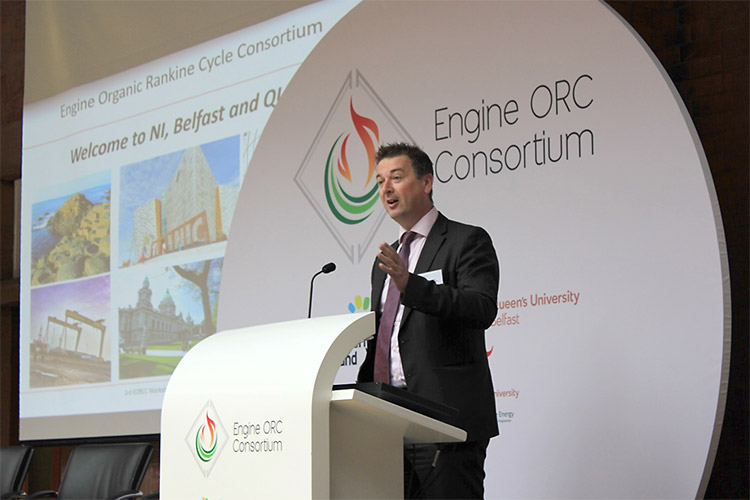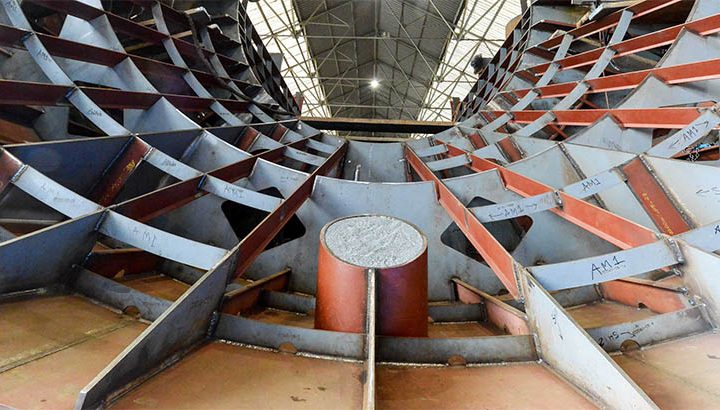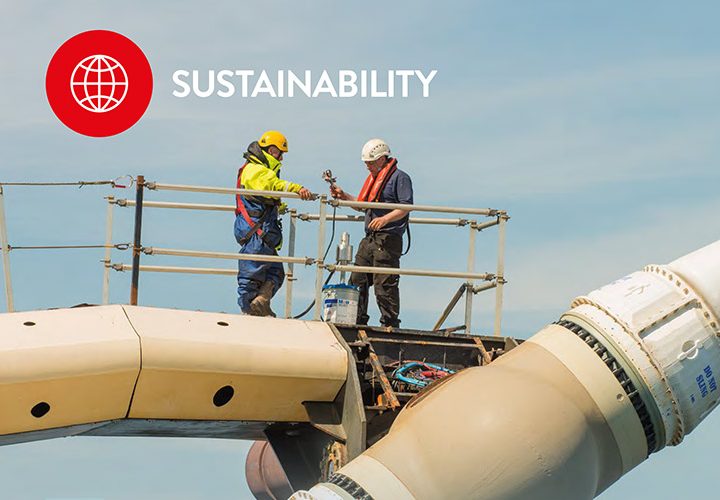
The 3rd international EORCC (Engine Organic Rankine Cycle Consortium) workshop was held in Belfast at Queen’s University Belfast (QUB) on the14th to the 16th of September 2016. An international workshop on Waste Heat Recovery (WHR) by ORC attended by 96 delegates from 59 companies and 15 countries from around the world and sponsored by Invest Northern Ireland via the Centre for Advanced Sustainable Energy (CASE), BorgWarner and the QUB Sustainable Energy Pioneering Research Program (PRP).
It was attended by technical specialists from major OEM’s, leading academics and researchers from some of the world’s most prestigious universities and leading supply chain companies, all with a common interest to make ORC a commercial reality to reduce the carbon footprint of Internal Combustion (IC) engines.
The workshop was an open forum for technical sharing and learning about mobile and stationary ORC systems up to 100 kW output power. The three day programme provided a perfect platform to explore issues of common interest, share successful practices and experiences, debate new concepts with a view to increasing the level of our collaboration and collective impact. Key themes for discussion included circuit architecture and expander approaches that yield high thermodynamic efficiencies, ORC fluid selection considerations, advanced control of ORC systems and ORC system text standardization.
ORC is by no means a new technology; its employed in every power station to generate electricity from heat except the working fluid is water rather than an organic fluid like those used in refrigeration. Whether its stationary or mobile source, IC engine lose approximately 2/3 of the fuel energy as heat to the exhaust and the coolant, only 15 to 20% actually producing useful work. The application of WHR ORC applied to stationary or mobile source IC engines has the potential to near double the fuel economy of the vehicle.
Early prototype applications on heavy duty vehicles have been getting cycle efficiencies of 7 to 8% (net work out over heat in) with a production target of 10% and the potential to achieve 15 to 20% cycle efficiency as the technology matures in production. QUB is currently running two CASE funded WHR ORC projects and one PRP project with a prototype application on an anaerobic digestion CHP stationary engine at Bridge Energy in Banbridge, Northern Ireland, and one as a teaching facility in the David Keir building at QUB.
The workshop was not only focused on increasing cycle and component efficiencies as well as improved weight and packaging but also focused on components and system on costs.
All in all, this was a very successful annual workshop, with the next to be held in Detroit in the fall of 2017. The aim and the hope of the committee, and of many of the delegates, is that the first WHR ORC production systems will begin to appear by late 2018 on heavy duty vehicles and stationary engines, which will be a start on having a global impact on vehicle and stationary engine emissions.





